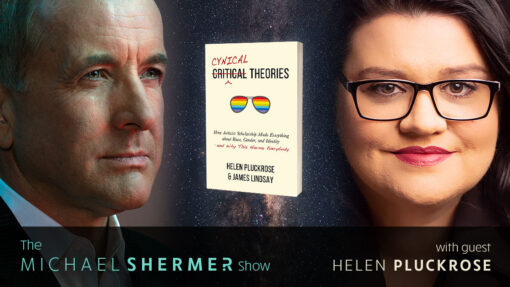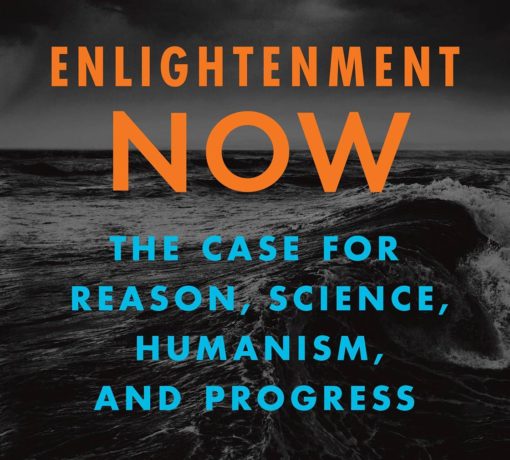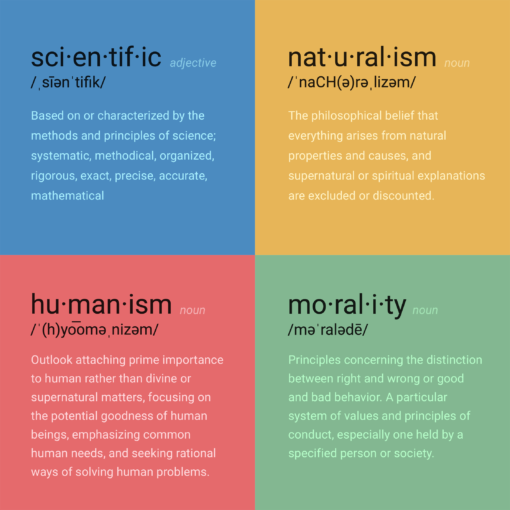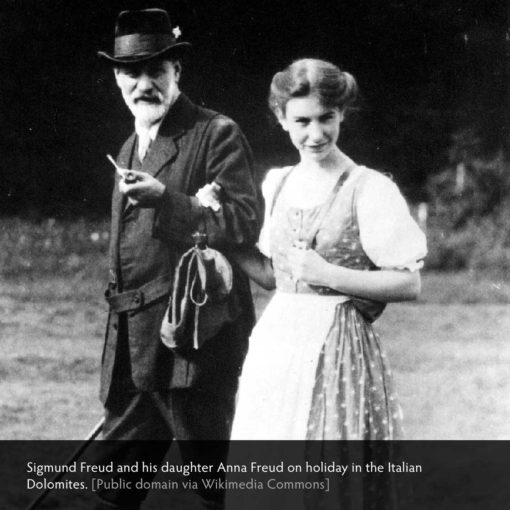humanism

Ever since the Enlightenment philosopher David Hume outlined the “Is-Ought” problem—that we cannot derive an ought from an is, or we cannot determine the way something ought to be morally based on the way things are in nature (the classic example being slavery—because ants practice slavery that doesn’t make it natural and therefore acceptable for humans to practice slavery)—people have struggled to figure out on what basis should moral values be grounded. Of course, theists argue that God is that…

In episode 163 of The Michael Shermer Show, Dr. Shermer speaks with Helen Pluckrose about her book (co-authored with James Lindsay) Cynical Theories: How Activist Scholarship Made Everything About Race, Gender, and Identity—and Why This Harms Everybody.
Skeptic Magazine 26.1: Cosmic Beginning is Available Now! Instantly Download the Digital Edition or Pre-order the Print Edition Today. PLUS: In episode 163 of The Michael Shermer Show, Dr. Shermer speaks with Helen Pluckrose about her book (co-authored with James Lindsay) Cynical Theories: How Activist Scholarship Made Everything About Race, Gender, and Identity — and Why This Harms Everybody.

In response to a NYT op-ed by Northeastern U. Psych. Prof. David DeSteno, Michael Shermer presents Harvard psychologist Steven Pinker’s full reply to DeSteno’s question about what science can learn from religion through testable hypotheses about human behavior.

Michael Shermer responds to Richard Weikart’s critique of his January 2019 column in Scientific American: “Stein’s Law and Science’s Mission: The Case for Scientific Humanism.”
Michael Shermer responds to Richard Weikart’s critique of his January 2019 column in Scientific American: “Stein’s Law and Science’s Mission: The Case for Scientific Humanism. And, in Science Salon # 50, Michael speaks with Dr. Rachel Kleinfeld, a senior fellow at the Carnegie Endowment for International Peace, where she focuses on issues of rule of law, security, and governance in post-conflict countries, fragile states, and states in transition.

Raymond Barglow discusses how the psychoanalytic tradition inaugurated by Sigmund Freud casts light on the mainsprings of human motivation and helps to explain human irrationality and encourage recovery.
In this week’s eSkeptic, Raymond Barglow discusses how the psychoanalytic tradition inaugurated by Sigmund Freud casts light on the mainsprings of human motivation and helps to explain human irrationality and encourage recovery.
This week, we present a recording of Michael Shermer’s article, “Scientific Naturalism: A Manifesto for Enlightenment Humanism,” originally published in the journal Theology and Science in July 2017, being read by the author, and introduced by David Smalley.
In this week’s eSkeptic, we present Michael Shermer’s article, “Scientific Naturalism: A Manifesto for Enlightenment Humanism,” from Theology and Science, 1 June, 2017.
Michael Shermer’s speech given at the Reason Rally in Washington, D.C. on March 24, 2012: the world’s largest gathering of skeptics, atheists, humanists, nonbelievers, and “nones” (those who tick the “no religion” box on surveys).
In this week’s eSkeptic, Kenneth W. Krause reviews Rights From Wrongs: A Secular Theory of the Origin of Rights by Alan Dershowitz.













